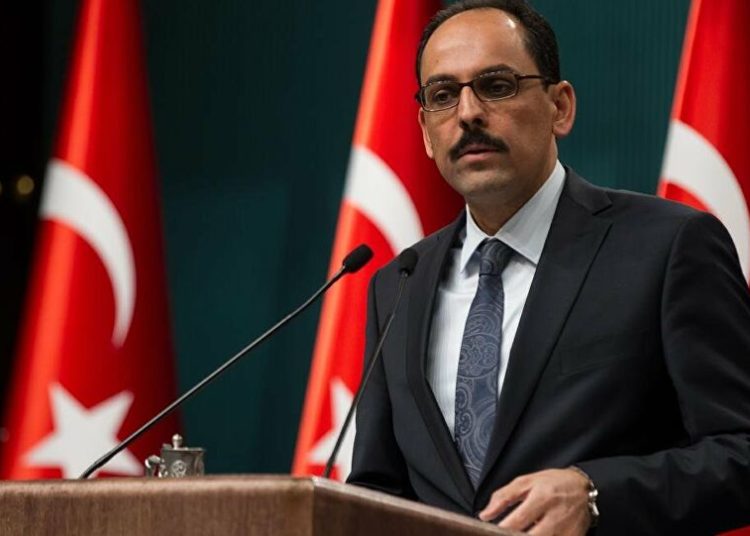Nordic Monitor
İbrahim Kalın, presidential spokesman and chief adviser to Turkish President Recep Tayyip Erdoğan, has turned out to be a great admirer and sympathizer of Iran’s mullah regime, a Nordic Monitor investigation has revealed.
In an article titled “Geç Kalmış Bir Tanıtım” (A late introduction) published in Kitap Dergisi (Book Journal) in December 1989, Kalın praised Iran’s Islamic revolution and its late leader Ayatollah Ruhollah Khomeini, borrowing rhetoric from the mullah regime. Kalın defined Khomeini as “the guide [rehber] of the uprising [kıyam],” “leader of the Islamic revolution,” “Imam of revolutionary Muslims” and “an example of devout Muslims.”

Kalın published the article to introduce Khomeini’s book, “Jihad Al-Akbar” (The Greatest Jihad), which comprises Khomeini’s lectures delivered in Najaf. In those lectures, Khomeini called on his students to purify themselves in preparation for the struggle. According to Khomeini, “the greatest jihad” was merely one step in the preparation for waging armed jihad against the enemies of Islam.
Second page of the article by İbrahim Kalın:
Nordic Monitor previously reported how Iran has become more visible in Turkey’s state apparatus, with pro-Iranian figures including Islamist and neo-nationalist (ulusalcı) officials named to critical positions in the foreign policy decision-making structure under President Erdoğan’s rule.
Today, Turkish foreign policy formulation and decision-making are executed within President Erdoğan’s inner circle. Following the adoption of the presidential system of governance in 2018, the Security and Foreign Policy Committee was set up in line with Presidential Degree No. 1 as the main body “responsible for proposing new policies, overseeing the implementation of policies and taking macro decisions.” While President Erdoğan is the official chair of the committee, spokesman and chief advisor Kalın currently acts as the deputy chair.
In addition to foreign policy-related posts, Hakan Fidan, Erdoğan’s close confidant with well-established pro-Iranian sympathies, became head of Turkey’s National Intelligence Organization (MIT) in 2010. Interestingly, the state bureaucracy intensified its ties with Iran after a failed coup in Turkey in July 2016.

Moreover, Nordic Monitor’s report shows how two senior advisors of President Erdoğan were investigated as suspects in a probe of Islamic Revolutionary Guard Corps (IRGC) Quds Force operatives and assets in Turkey. Sefer Turan, Erdoğan’s chief foreign policy advisor for Muslim and Arab states, and Mustafa Varank, his former chief advisor who is now minister of industry and technology, were wiretapped by investigators who suspected the two had been working secretly to promote the interests of the Quds Force in Turkey.
It is quite interesting that those aides have also served as interlocutors between President Erdoğan and jihadist groups having close ties to al‐Qaeda. According to a Turkish police intelligence report exposed by Nordic Monitor, Fedaa Majzoub, who was working for the Libyan jihadist Ben Ali group in Turkey, had been in touch with Kalın and Turan while arranging the movement of foreign fighters and weapons from Libya to Syria through Turkey.

When Erdoğan visited Tehran in 2014, he said, “Iran feels like a second home,” a statement that sums up the president’s affection for the Islamist regime in Iran. A pillar of Erdoğan’s anti-Western policies, Dogu Perinçek, leader of the neo-nationalist Homeland Party (Vatan Partisi, VP) is a staunch supporter of Iran. He claimed that “a strong Iran means a strong Turkey” and called Iran “one of the most powerful bastions fighting against American imperialism and Israel in western Asia.” Following the formation of the alliance with Erdoğan, Perinçek’s influence in major institutions in Turkey, from the bureaucracy to the judicial system and from state administration to the military and media, started to rise.












